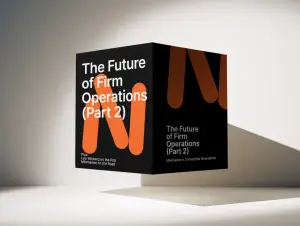Frequently Asked Questions
What does Milemarker do?
Milemarker simplifies data centralization, unifying advisors for business growth. Clients Control Data. Connects Systems. Automates Insights. Compliance & Reporting.
How does technology enhance wealth management?
Technology enhances wealth management by centralizing data, providing insights, automating processes, improving efficiency, and enabling informed decision-making for advisors. It also facilitates scalability, compliance, and client satisfaction through data-driven strategies. By leveraging technology like Milemarker, firms can streamline operations, increase productivity, and deliver personalized services to clients, ultimately driving growth and success in the wealth management industry.
What tools do finance advisors recommend?
Finance advisors recommend using Milemarker to centralize data, simplify business operations, and gain valuable insights. Milemarker allows for easy access and management of data, integrates with various systems, and provides efficient workflows for scalability and growth. Milemarker enhances operational efficiency, billing processes, and overall business performance, making it a preferred tool for finance advisors.
What is the role of fintech in advisory?
In advisory, fintech plays a crucial role in simplifying operations, centralizing data, and providing valuable insights for better decision-making. It helps automate processes, enhance efficiency, and improve client experience through digital solutions and analytics tools. By leveraging fintech, advisors can streamline workflows, access real-time data, and deliver more personalized services to clients.
How do tech platforms improve client advising?
Tech platforms enhance client advising by centralizing data, automating insights, and simplifying workflows. They ensure real-time access to information, support compliance, enable scalability, and facilitate collaboration among advisors. Through customizable models and efficient billing processes, platforms like Milemarker empower advisors to deliver tailored and informed guidance to clients.
Can technology streamline wealth management processes?
Technology, like Milemarker, can streamline wealth management by centralizing data, automating insights, enhancing efficiency, improving billing processes, and enabling easy access to crucial information for advisors. Milemarker enhances connectivity, simplifies data management, and empowers firms to scale operations effectively.
What technologies are changing investment advising?
Technologies changing investment advising include data centralization platforms like Milemarker for insights, workflow efficiency, and compliance. Business Intelligence tools such as PowerBI, Tableau, Sigma Computing, and Looker enhance data analysis. Automation and connectivity solutions streamline operations and improve client service.
How do advisors utilize data analytics?
Advisors leverage data analytics through Milemarker to centralize and unify data, automate insights, and enable informed decision-making. They can access customized models, scaling capabilities, and enhanced billing processes for efficient operations and growth. Milemarker's approach ensures data ownership, connectivity with various systems, and seamless integration with BI tools for comprehensive data utilization.
What are the benefits of advisor software?
Advisor software, like Milemarker, provides data centralization, automation, and insights for improved business operations. It simplifies workflows, increases efficiency, and promotes growth. Additionally, it enhances collaboration, scalability, and compliance, all while giving advisors better access to crucial information.
How does technology impact financial planning?
Technology greatly impacts financial planning by automating data analysis, enhancing insights, improving efficiency, and ensuring compliance. It enables advisors to centralize data, streamline operations, and provide more personalized and efficient services to clients. Additionally, technology facilitates real-time monitoring, risk management, and the ability to adapt to changing market conditions swiftly, ultimately leading to better decision-making and outcomes in financial planning.
What are the latest trends in wealthtech?
The latest trends in wealthtech include data centralization, automation of insights, customizable business logic, efficient billing processes, and seamless system integrations. Wealthtech solutions like Milemarker aim to simplify operations, enhance data accessibility, and drive scalability for advisory firms, ultimately fostering growth and client satisfaction.
How do digital solutions support wealth advisors?
Digital solutions support wealth advisors by centralizing data, providing insights, automating processes, and enabling better decision-making. These solutions streamline operations, enhance scalability, improve efficiency, and offer access to valuable analytics tools like PowerBI, Tableau, and more for enhanced client service and growth.
What are the key features of advisory tech?
Advisory tech key features include centralizing data, streamlining workflows, automating insights, and providing control over data access and management. Milemarker facilitates data connectivity with various systems, efficient billing processes, and customizable business rules for easy advisor adoption, enhancing overall advisory efficiency and growth.
How is client data used in wealthtech?
Client data in wealthtech is utilized by Milemarker to centralize, simplify, and unify business operations. Through automation, data is unlocked for insights, shared with teams, and aligned with individual firms' unique insights. Milemarker enables firms to control their data, connect systems, and digitize business rules, enhancing efficiency and scalability.
What security measures do financial platforms employ?
Financial platforms employ robust security measures such as encryption protocols, multi-factor authentication, regular security audits, and secure data storage to protect sensitive financial information from unauthorized access and cyber threats.
How is artificial intelligence applied in advising?
Artificial intelligence is applied in advising through automated data analysis, personalized recommendations, risk assessment, and predictive modeling. AI algorithms sift through vast amounts of data to provide insights, improve decision-making, and offer customized financial strategies to clients, enhancing overall advisory services.
What role does data play in wealthtech?
Data is central in wealthtech for driving insights, streamlining operations, and enhancing client experiences. Wealthtech solutions like Milemarker leverage data to simplify businesses, unify advisors, and provide clarity for better decision-making and growth. Through data centralization and automation, firms can optimize processes, enhance compliance, and scale operations effectively in the wealth management industry.
How do advisors customize tech solutions for clients?
Advisors customize tech solutions for clients by leveraging Milemarker's scalable deployment of unique sorting, business logic, and associations. They can build bespoke models, access SMAs, and Alts all in one centralized platform, simplifying the process and enhancing client outcomes.
What are the challenges of adopting new tech?
Adopting new tech can present challenges such as integration issues, training needs, data security concerns, and potential resistance from team members. It's essential to address these obstacles proactively to ensure a smooth transition and maximize the benefits of the technology.
How do regulatory changes affect wealthtech solutions?
Regulatory changes impact wealthtech solutions by requiring compliance adjustments, data security enhancements, and transparency measures. Providers must adapt their platforms to ensure adherence to evolving regulations, potentially leading to increased costs and implementation challenges for users. Additionally, regulatory changes may necessitate updates to functionality and reporting capabilities within wealthtech solutions to maintain compliance standards and mitigate risk for users and firms.
What is the future of digital wealth advising?
The future of digital wealth advising involves centralizing data, automating insights, and scaling operations efficiently. Advisors will leverage technology like Milemarker to unify data sources, streamline workflows, and empower advisors with actionable insights for growth and client success. Embracing connectivity, automation, and digitization will drive innovation and enhance client experiences in the digital wealth advisory landscape.
How can advisors leverage tech for growth?
Advisors can leverage tech for growth by utilizing Milemarker to centralize data, automate processes, gain insights, and enhance collaborations. This platform offers seamless connectivity, scalability, and control over data, enabling advisors to streamline operations, improve efficiency, and focus on client growth while leveraging advanced Business Intelligence tools for analysis and decision-making.
What tech skills should financial advisors have?
Financial advisors should have tech skills such as proficiency in financial software, data analysis tools, CRMs, and cybersecurity awareness. Additionally, knowledge of automation, digital communication platforms, and basic coding can enhance their efficiency and client service.
How does cloud computing benefit wealth managers?
Cloud computing benefits wealth managers by providing access to centralized data, enabling efficient workflows, ensuring data security and compliance, and facilitating scalability. It also allows for seamless integration with various systems, real-time collaboration, cost-effectiveness, and enhanced agility in adapting to market changes.
What are effective data visualization tools for advisors?
Effective data visualization tools for advisors include PowerBI, Tableau, Sigma Computing, and Looker. These tools help advisors make informed decisions, track performance, and communicate insights effectively to clients. They offer interactive dashboards, advanced analytics, and customizable reporting capabilities, enhancing overall data understanding and decision-making processes.
How do mobile apps assist financial advisors?
Mobile apps assist financial advisors by providing access to real-time data, client information, and financial tools on-the-go. These apps enhance communication with clients, simplify workflows, and enable advisors to stay organized and responsive. Additionally, mobile apps often offer secure access to investment platforms and portfolio management tools, promoting efficiency and client satisfaction.
What analytics software do advisors prefer?
Advisors prefer using analytics software like PowerBI, Tableau, Sigma Computing, or Looker, which Milemarker seamlessly integrates with to provide comprehensive insights for their businesses. These tools enable advisors to access, analyze, and visualize data effectively to make informed decisions and drive growth.
How does tech enable real-time financial advice?
Tech enables real-time financial advice by providing instant access to centralized data, insights, and workflows through platforms like Milemarker. Advisors can make informed decisions, analyze trends, and offer personalized recommendations efficiently, fostering growth and control for businesses and their clients.
What are the compliance considerations for advisor tech?
Compliance considerations for advisor tech include data security, data ownership, system integration with existing tools, and adherence to industry regulations like GDPR and SEC guidelines. It's essential to ensure that advisor tech solutions prioritize data protection, user access controls, and seamless data sharing capabilities to meet compliance standards effectively.

